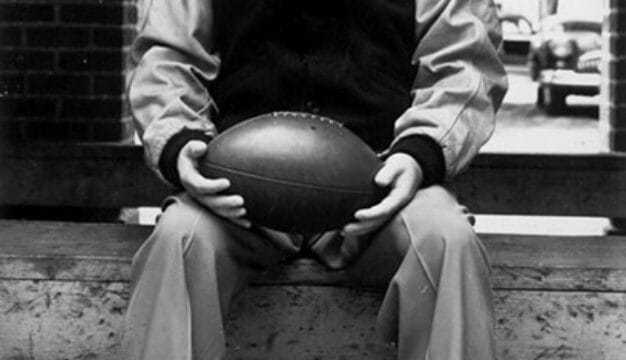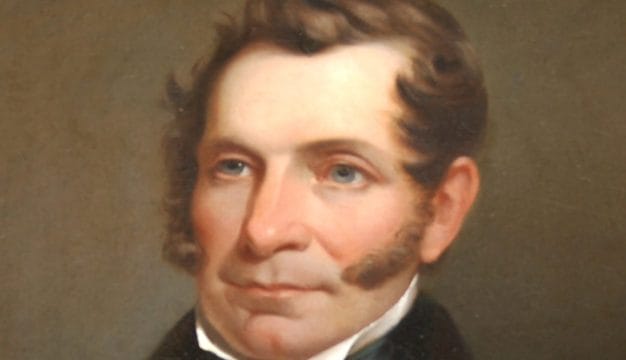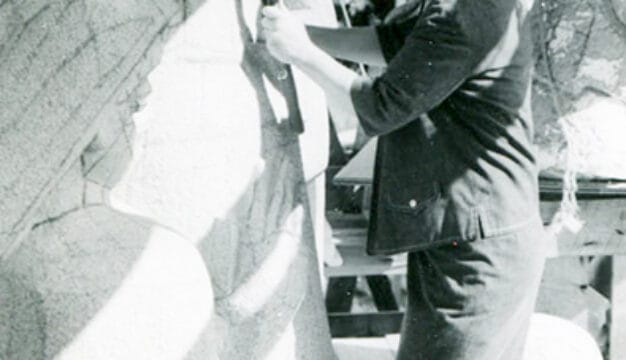Historic Depot Park
Historic Depot Park (formerly the Huntsville Depot and Museum) is located in downtown Huntsville, Madison County. The depot is adjacent to the Norfolk Southern Railway line and is the oldest surviving railroad depot in Alabama and one of the oldest in the United States. The park and depot, along with the EarlyWorks Children’s Museum and Alabama Constitution Hall Historic Park and Museum, is part of EarlyWorks Museums, a non-profit agency of the city of Huntsville.
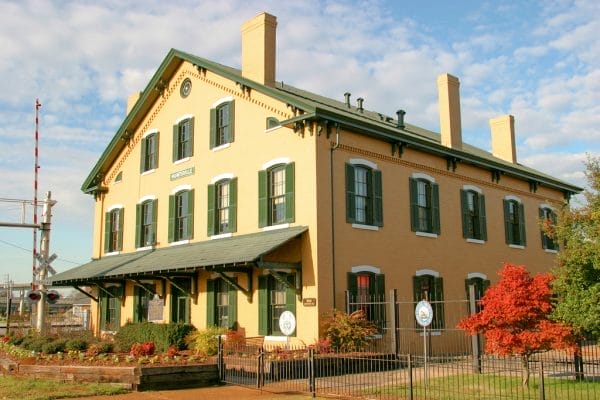 Huntsville Depot and Museum
On May 21, 1851, the Memphis & Charleston Railroad Company began on a railroad to run through Huntsville on its route from Memphis to Chattanooga. The General Garth train made its first run through Huntsville on October 13, 1855, coming from Decatur, Morgan County, 20 miles away. Huntsville became the railroad company’s Eastern Division headquarters and by the late 1860s, the headquarters included the depot, a freight station, a 13-bay roundhouse with turntable, an engine house, a car shop, and a machine shop. On the first floor of the depot were the ticket office, engineer’s and conductor’s rooms, waiting and rest (then called “retiring”) rooms, and a baggage room. The second floor housed the offices of the superintendent, the secretary, railroad treasurer, and other railroad officers, and the third floor served as the railroad employees’ bunk room.
Huntsville Depot and Museum
On May 21, 1851, the Memphis & Charleston Railroad Company began on a railroad to run through Huntsville on its route from Memphis to Chattanooga. The General Garth train made its first run through Huntsville on October 13, 1855, coming from Decatur, Morgan County, 20 miles away. Huntsville became the railroad company’s Eastern Division headquarters and by the late 1860s, the headquarters included the depot, a freight station, a 13-bay roundhouse with turntable, an engine house, a car shop, and a machine shop. On the first floor of the depot were the ticket office, engineer’s and conductor’s rooms, waiting and rest (then called “retiring”) rooms, and a baggage room. The second floor housed the offices of the superintendent, the secretary, railroad treasurer, and other railroad officers, and the third floor served as the railroad employees’ bunk room.
On April 11, 1862, federal troops marched into Huntsville and captured the depot, severing a vital Confederate rail link. For ten days, 159 Confederate soldiers were held prisoner on the third floor of the depot building before being transferred to a prisoner of war camp in Ohio. Following the Civil War, the U.S. government returned the line, in almost total ruin, to the Memphis & Charleston Railroad Company, which subsequently went bankrupt. The line was purchased by the Southern Railway System in 1898. The depot was renovated in 1912 and remained a passenger station until 1968. The building was placed on the National Register of Historic Places in 1971.
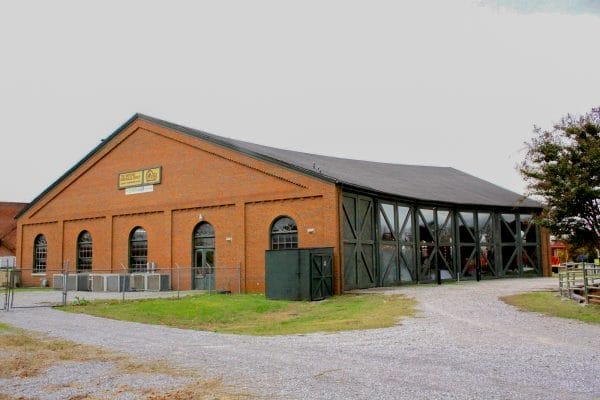 Huntsville Depot Roundhouse
The Huntsville Depot offers visitors interesting facts about rail travel of the time. For example, the benches have armrests at regular intervals that prevented passengers from sleeping on them before their train departures, and metal spines, known as “loafer spikes,” in the wells of outside depot windows that kept people from sitting on the sills while sight-seeing and watching the trains come and go.
Huntsville Depot Roundhouse
The Huntsville Depot offers visitors interesting facts about rail travel of the time. For example, the benches have armrests at regular intervals that prevented passengers from sleeping on them before their train departures, and metal spines, known as “loafer spikes,” in the wells of outside depot windows that kept people from sitting on the sills while sight-seeing and watching the trains come and go.
Prior to its closure owing to staffing issues, visitors were able to view a model train system on the second floor that depicts the depot and rail line and the Monte Sano Hotel, which served guests until 1946. Depot exhibits include the Civil War and Alabama history, the importance of cotton to the South, and life at the end of the nineteenth century. Also on display are the steel-and-concrete treasure’s vault, which safeguarded railroad money, bonds and other property and was made to look like a false wood door, and a velocipede, or handcar. The velocipede was used by an inspector to ride up and down the tracks to make sure everything was clear, and if a train came down the tracks while the inspector was working, he could easily lift the third wheel and flip his velocipede off the track.
Graffiti from Confederate prisoners is preserved on the third floor, including names, regiments, prayers, and personal messages. Federal troops left graffiti as well, including a sketch by Maj. Leonidas Stout, a Union officer from Virginia who was involved in the 1862 capture of the depot.
The park surrounding the depot is open to public use. On the grounds of the depot are the track trolley, the depot locomotive, the train turntable, and various railroad rolling stock. Also on the grounds are the auto house, which serves as a transportation museum with rotating exhibits of historic cars and Huntsville’s first ladder fire truck, and the Roundhouse, which serves as a rental facility for events.
WhistleStop Weekend and Rocket City BBQ gathers thousands of people onto the grounds over two days on the first weekend in October and serves as a fundraiser for the EarlyWorks Museums. More than 100 professional and amateur barbecue teams typically vie for honors for cooking the best ribs, chickens, and pork. The celebration includes a wing-tasting contest, a cornhole tournament, a children’s area, and musical entertainment.
